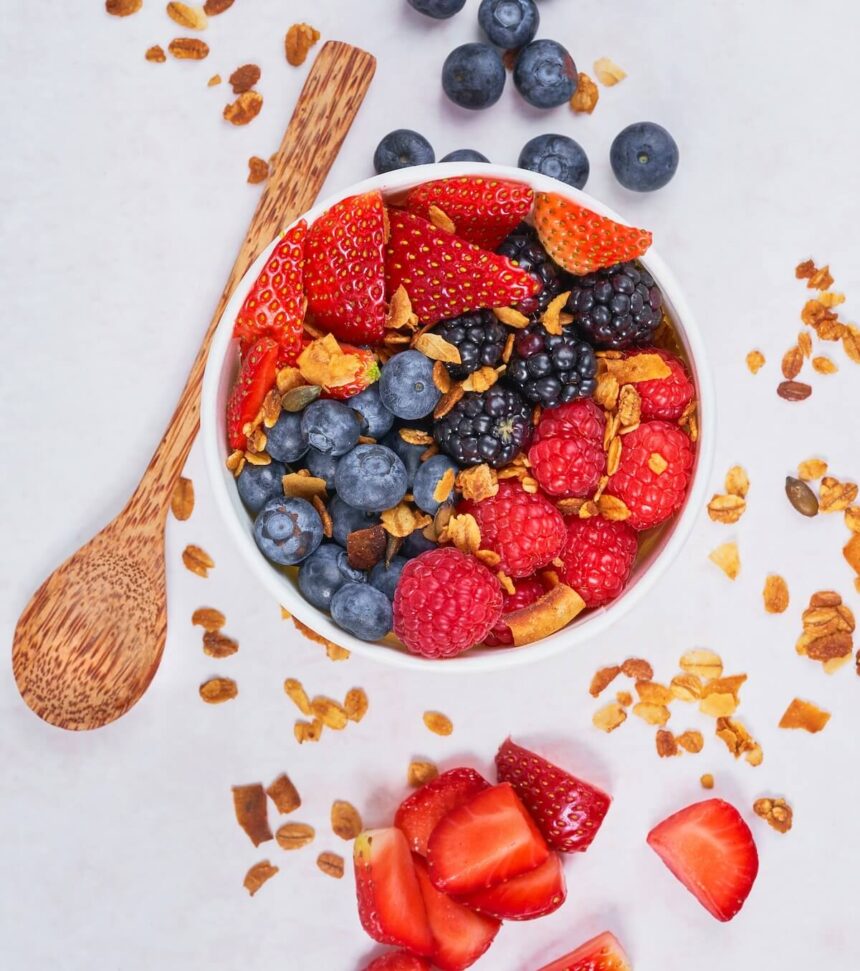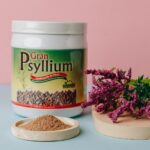Antioxidants are a trendy topic. We make sure they’re in our diet because we know they’re good for us and that they have something to do with free radicals – whatever that means.
But what are antioxidants exactly, and what role do they play in the human body? Finally, what are the top foods for antioxidants? Keep reading for these answers and so much more.
What Are Free Radicals?
In order to understand what an antioxidant is, and why it’s so important, it helps to know a little bit about molecules in the body.
The human body is made up of atoms. If you imagine an atom, it’s made up of positive-charged protons, along with neutrons in its center. Then, there are negative-charged electrons enclosing them.
Therefore, an atom is a combination of protons, neutrons, and electrons.
When two or more atoms join together, they create a molecule. Molecules are the building blocks of the human body. For example, fats and proteins are all big molecules.
These molecules can be big or small. And via metabolism, molecules can add more atoms to themselves and become bigger. Or, they can release certain atoms to become smaller molecules. Throughout these changes, it’s important that the molecule always stays stable.
A molecule remains stable if it maintains the correct number of electrons. If an electron gets lost, the molecule can turn into a free radical.
So, a free radical is basically a molecule gone wrong – a molecule that’s missing an electron. But why is that such a bad thing?
Why Are Free Radicals Dangerous?
Free radicals are trouble within the body because they’re unstable. These electrically charged items create a ripple effect of damage in the original molecule, as well as in any other molecules it comes into contact with, including DNA.
Therefore, if molecules are the building blocks for everything in the human body, it’s not hard to see why free radicals can be dangerous. If a molecule is damaged and can create subsequent damage to surrounding molecules, it can compromise the health of the body. And this is where antioxidants come in.
What Are Antioxidants?
We know what molecules are, as well as what happens when a molecule loses an electron: it becomes a free radical that can cause damage to the body.
So, the question is, how can the once-complete molecule go back to normal?
Does the body have an inventory of backup electrons to give to broken molecules? Well, sort of.
Antioxidants are substances that give away one of their electrons to the damaged molecule, restoring balance to it, and helping to fight free radicals.
Where do these antioxidants come from? There are two ways. First, the body can produce its own antioxidants to help fight free radicals. But it’s also important to eat foods that contain antioxidants to support the body’s almost constant battle with free radicals.
Yes, free radicals are always forming in the body. In fact, free radicals form during completely ordinary and normal bodily functions like breathing and digestion.
And as long as there are enough antioxidants to keep everything in balance, it’s not a problem.
Why Are They Called Antioxidants Instead of Anti-free Radicals?
Since antioxidants help to fight free radicals, why do we call them “antioxidants”? Free radicals are pro-oxidant substances. Whereas antioxidants are anti-oxidant substances.
And when there are more free radicals, or pro-oxidant substances than antioxidants, the body experiences a condition called oxidative stress.
What Is Oxidative Stress?
Oxidative stress is a problem in the body. It’s a condition where free radicals ransack molecules. These molecules then remain damaged and even die since there aren’t enough antioxidants to repair the molecules with the much-needed, missing electron.
However, not having enough antioxidants is only one risk factor for oxidative stress. In fact, this problematic condition can be due to many factors, including, but not limited to, the following:
- A diet high in polyunsaturated fats, like corn, soybean, and safflower oils
- A diet high in added sugars, synthetic additives, and toxins, like herbicides and pesticides
- Tissue damage from over-exercising
- Alcoholic beverages
- Cigarette smoke
- Toxins in food, cosmetic, and household products
- Pollution in the environment
- Radiation exposure
- Physical and emotional stress
If oxidative stress continues, it can lead to many serious health conditions:
- Neurodegenerative disorders
- Cancer, including lung cancer
- Heart failure and heart attacks
- Chronic fatigue
- Vision disorders
- Inflammatory disease, including arthritis and inflammatory bowel disease
- Diabetes
- Kidney disease
- Autoimmune diseases, including skin disease and celiac disease
As you can see, when free radicals outnumber antioxidants, they can cause serious damage. And if this damage goes unchecked for too long, it can lead to threatening conditions.
This makes antioxidants super important. Even though antioxidants work on a molecular level, they can have an incredible impact on the overall health and wellness of your entire body. Without them, free radicals would overtake the body.
Health Benefits of Antioxidants
There are so many wonderful benefits that antioxidants provide. And it’s not hard to see why. After all, they protect the integrity of molecules, which in turn build everything in the body.
With healthy, complete molecules, the body thrives. Here are just some of the benefits that antioxidants provide for the body:
- Longevity
- Anti-aging effects for the brain, heart, joints, tissues and more
- Youthful skin
- Protection against vision problems
- Reduced risk of cancer
- Reduced risk for heart conditions, including stroke and heart disease
- Protection against neurological degenerative disorders
So, it’s definitely a good idea to make sure you include antioxidant-rich foods in your diet to fight off free radical damage and to prevent oxidative stress.
Foods High in Antioxidants to Protect Against Free Radicals
The National Institute on Aging (NIA) – a division of the National Institutes of Health (NIH) developed a measurement system to determine the number of antioxidants in certain foods.
Here are some of the high-scoring antioxidant foods. As you’ll see, they’re pretty common and pretty tasty options, too.
- Berries, which contain the antioxidants quercetin and resveratrol, including goji berries, blueberries, elderberries, cranberries, blackberries, lingonberries, mulberries, and bilberries
- Foods with resveratrol, such as red wine and cocoa (be sure to avoid highly processed chocolate with added sugar)
- Orange-colored vegetables including carrots, pumpkins, squash, and sweet potatoes
- Foods high in the antioxidant lycopene, such as tomatoes and red peppers
- Foods high in antioxidants lutein and quercetin, like leafy greens, including spinach and kale
- Green tea and white tea
Herbs and spices are another great way to sneak antioxidants into your diet. Dr. Axe recommends the following herbs and spices for an added kick of antioxidants:
- Basil
- Cayenne pepper
- Cinnamon
- Clove
- Cocoa
- Cumin
- Ginger
- Parsley
- Oregano
- Thyme
- Turmeric
Should You Take Antioxidant Supplements?
The research is still forthcoming about whether or not antioxidant supplements can prevent and treat disease. Therefore, it’s important to not rely on supplements for all of your antioxidant needs.
In any respect, it’s always better to get your nutrients from the foods you eat. That goes for everything from vitamins to minerals to antioxidants.
So, focus on eating a balanced, antioxidant-rich diet, along with reducing exposure to environmental toxins while also reducing emotional and bodily stress. All of these factors together – and not just a supplement – play a big role in reducing free radicals and having a healthy supply of antioxidants.
That being said, there are some antioxidant supplements that can be beneficial.
Glutathione
Glutathione is an antioxidant present inside the body’s own cells. Therefore, it helps to protect individual cells while also supporting other antioxidants in their fight against free radicals.
Resveratrol
You may recall that resveratrol is found in cocoa and wine, along with dark berries. This antioxidant helps the body respond to stress and infection.
Quercetin
This antioxidant is found in dark leafy green vegetables and deeply hued berries. Quercetin can help to relieve inflammatory health issues.
Vitamin C
Did you know that Vitamin C is actually an antioxidant? It’s true, and as you may already know, this antioxidant is very useful in supporting and strengthening the immune system. So, foods rich in Vitamin C are great sources of antioxidants, too.
Lutein
Like quercetin, lutein is also derived from dark leafy greens. This antioxidant benefits many areas of the body, including the eyes, arteries, heart, skin, and the immune system.
Can You Overdo It With Antioxidants?
Free radicals can cause so much damage to the body – especially if left unchecked. Oxidative stress makes the body vulnerable to many serious health conditions. And it goes without saying that we need antioxidants to help keep this from happening.
So, you might think the best thing to do is load up on lots of antioxidants. After all, we just covered all the top foods, spices, and supplements to increase your antioxidant intake.
However, too much of a good thing isn’t necessarily a good thing – and that goes for antioxidants, too.
Now, if you’re eating a balanced, healthy diet, you have nothing to worry about.
However, if you consume too much of just one antioxidant – especially in supplement form – it can have negative effects on the body. In fact, it can encourage, rather than discourage, oxidative stress and the subsequent health problems that can follow.
Yes, it’s important to help the body fight free radicals, but balance is key, too. So, as long as you make conscientious decisions to include antioxidant-rich foods in a balanced diet, there’s no threat to overdoing it with antioxidants.
And if you’re still interested in taking an antioxidant supplement, consult with your doctor to discuss the best one for you, as well as safe dosages.
Antioxidants are amazing little helpers that keep molecules healthy and complete. This helps to slow aging, reduce the risk of serious health problems, and support a strong, vibrant body.








